When the 116th Congress convenes nearly eight weeks and hundreds of news cycles from now, the parties’ leadership races, like the 2018 midterm elections, will exist in the history books. Lawmakers then will turn to a bigger new obstacle: They will attempt to resurrect the power of their branch of government amid split party control and the overwhelming force field of the 2020 presidential contest.
In Democratic hands, the House will launch a dual agenda for the 116th — investigate the administration and President Donald Trump, while pushing for big-scope overhauls of the nation’s campaign finance, ethics and voting laws. The chamber’s majority, with its historic diversity of women and people of color, also plans to turn to major policy changes on health care, immigration, gun control, an increased minimum wage and infrastructure projects, the latter an area of potential compromise with the GOP-led Senate and the commander in chief.
Under the direction of Majority Leader Mitch McConnell of Kentucky, the Senate Republican majority will prioritize judicial confirmations, while also seeking to move bills on prescription drug prices, immigration matters and other issues.
“The health care system is still a pretty big mess, and it’s obviously now going to have to be addressed on a bipartisan basis because the Democrats will control the House,” McConnell said recently during a news conference on Capitol Hill.
Whether Trump and his team will attempt to make deals with House Democrats and the Senate remains the realm of bookies for now. In the nearly two years since his inauguration, the president has governed with one constant guiding principle: uncertainty.
“Historically, most presidents when they’ve come to this crossroads have attempted to backpedal and moderate their more extreme policy instincts,” says Brandon Rottinghaus, a political science professor at the University of Houston. “I don’t expect President Trump will be in a position to pursue that strategy. He has not shown a willingness to see the legislative scoreboard as something which is a major benefit to him.
“To put it in baseball terms: The president is willing to swing and strike out and complain about the umpire rather than hit a single and advance the runners,” he says.
Instead, Trump is more likely to use heated policy issues to inflame his base, adds Rottinghaus, who studies presidential politics and political scandal. Seemingly to bolster that point, just hours after the midterm elections, the president demanded the resignation of his attorney general, former Alabama Sen. Jeff Sessions, a move that upped the odds of all-out war between Trump and congressional Democrats over the fate of a special counsel probe into foreign interference in the 2016 elections.
Divided government, the investigations in the House, the number of Senate Democrats eyeing the White House for themselves, intraparty squabbles and the deep divisions among American voters all point to legislative stalemate, gridlock and vitriolic rhetoric from Jan. 3, 2019, when the new Congress convenes, until it ends on the cusp of a new presidential term two years later.
But beware of dismissing the 116th as insignificant. It won’t be.
Even with a truncated window for legislating before the 2020 presidential campaigns steal the stage, the next two years on Capitol Hill will matter.
“They can pass a lot of potential legislation through the House and people can argue that that’s inconsequential because it won’t get through the Senate, but nobody — no regulated entity, no corporation, not-for-profit, anybody who has an interest in public policy or regulation — can sit on the sidelines because at some level everything is part of a longer game,” says Joel Johnson, a Democratic lobbyist and managing director of the Glover Park Group. “Everything the House can muscle through and send to the Senate where it likely meets its demise is still not inconsequential because it may be the beginnings of the debate of the next president.”
The Power of the Subpoena
The presumed next speaker of the House, Nancy Pelosi of California, is cautioning her caucus not to take their investigations of the president and his administration too far. It is likely to be a high-profile example, among others, of disagreement within the party.
Though her base — and her most liberal members — agitate for impeachment, Pelosi wants to focus on health care and high prescription drug prices, anti-corruption legislation, and economic measures.
Still, the investigations will start early.
House Democrats — such as California’s Adam B. Schiff, who is poised for the House Intelligence Committee gavel, and Elijah E. Cummings of Maryland, the expected incoming chairman of House Oversight and Government Reform — have chafed under their current GOP chairmen.
Rep. Lloyd Doggett, the Texas Democrat who is in line to serve as chairman of the House Ways and Means Subcommittee on Tax Policy, says the panel must explore the 2017 GOP tax overhaul while also pursuing the president’s personal and business taxes.
Of the latter, he says, “We need to act on this promptly,” adding that the president, in his view, “has unprecedented conflicts of interest” and potential entanglements with foreign interests given his businesses abroad. But to avoid overreach, he says, “I think it has to be done with care.”
This part of Democrats’ agenda has drawn threats from the president, who promised during a wide-ranging and sometimes raging, post-election news conference that if Democrats probe him, he’ll respond in kind, “and government comes to a halt. And I would blame them because they now are going to be coming up with policy.” As if to offer a carrot along with the stick, the president cited measures on prescription drugs and veterans issues as areas of possible comity.
“I would like to see bipartisanship. I’d like to see unity,” Trump said.
Despite that, Joshua Huder, a senior fellow at Georgetown University’s Government Affairs Institute, predicts the 116th Congress will resemble the 112th (2011-12) and 113th (2013-14), which were marked by extreme dysfunction, brinkmanship and shutdown showdowns.
“You can expect a really, really, really unproductive Congress to start — living in a time of extreme polarization and partisanship,” Huder says.


